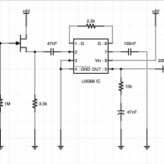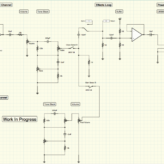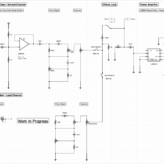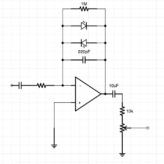
I have been playing with some various circuits to deal with the pre amp stages and effects loops for my miniature guitar amplifier design. The circuit presented here is a revision of my previous core amplifier schematics. Other than a few component changes, the main difference is that I have added an N-FET transistor (MPF102) buffer to the input stage. This should prevent improper impedance loading on any pedals in the effects loop stage...
Read More




